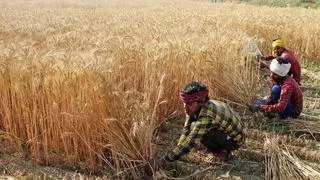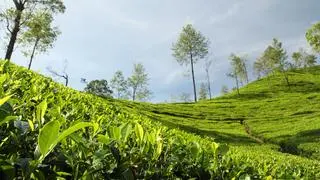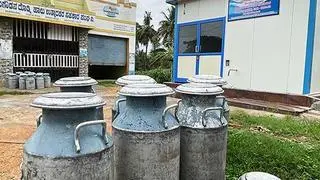India transformed its dairy sector from milk deficiency to becoming the world’s largest producer with the help of technological innovations and bringing people together under a governance structure, Meenesh Shah, Chairman of the National Dairy Development Board (NDDB), said at the Science & Innovation Forum 2022 organised by the Food and Agriculture Organization (FAO) of the United Nations in Rome, Italy.
Shah said India contributes 23 per cent of global milk production with an annual growth rate of about 6 per cent, which could be possible “through innovations - technological, scientific processes and more importantly bringing people together and building a governance structure.”
At the global dairy forum, Shah presented India’s smallholder dairy system to global experts and shared experiences of using innovation and digitisation for dairy development.
Discussing cooperation
On the sidelines of the World Food Forum, the NDDB Chairman met Beth Bechdol and Maria Helena Semedo, FAO’s Deputy Director-Generals and Thanawat Tiensin, Director, Animal Production and Health Division (NSA), to discuss the Indian smallholder farming system, sustainable livestock production systems and innovations.
During the meetings, the opportunities for working together in the dairy development area were discussed, and Shah proposed jointly organising an international symposium as part of the G20 presidency of India, an NDDB statement said.
On the theme of ‘Harnessing science and innovation for sustainable livestock sector transformation’, Shah spoke on ‘Technological innovation in support of small-scale dairy producers in India’.
NDDB now focuses on digital ecosystems like Information Network for Animal Productivity & Health (INAPH), the national database in which over 230 million animals are registered & National Digital Livestock Mission (NDLM) having components like traceability, disease surveillance, and control programmes.
Dung management
He explained India’s manure (cattle dung) management initiatives being undertaken by NDDB with partner organisations and how it successfully addresses the cooking gas needs of households, besides generating income from the sale of bio-slurry, solid and liquid organic fertilisers and improving soil fertility.
This initiative is also being furthered by setting up large-scale biogas plants that would meet the energy needs of the dairy plants, he said.
He further stressed that the time has come to take the successes of the laboratory to the field, and improve operational efficiency & reduce the impact of dairying on the environment for which such cross-learning experiences and sharing platforms would be necessary for implementing best practices across the globe.








Comments
Comments have to be in English, and in full sentences. They cannot be abusive or personal. Please abide by our community guidelines for posting your comments.
We have migrated to a new commenting platform. If you are already a registered user of TheHindu Businessline and logged in, you may continue to engage with our articles. If you do not have an account please register and login to post comments. Users can access their older comments by logging into their accounts on Vuukle.